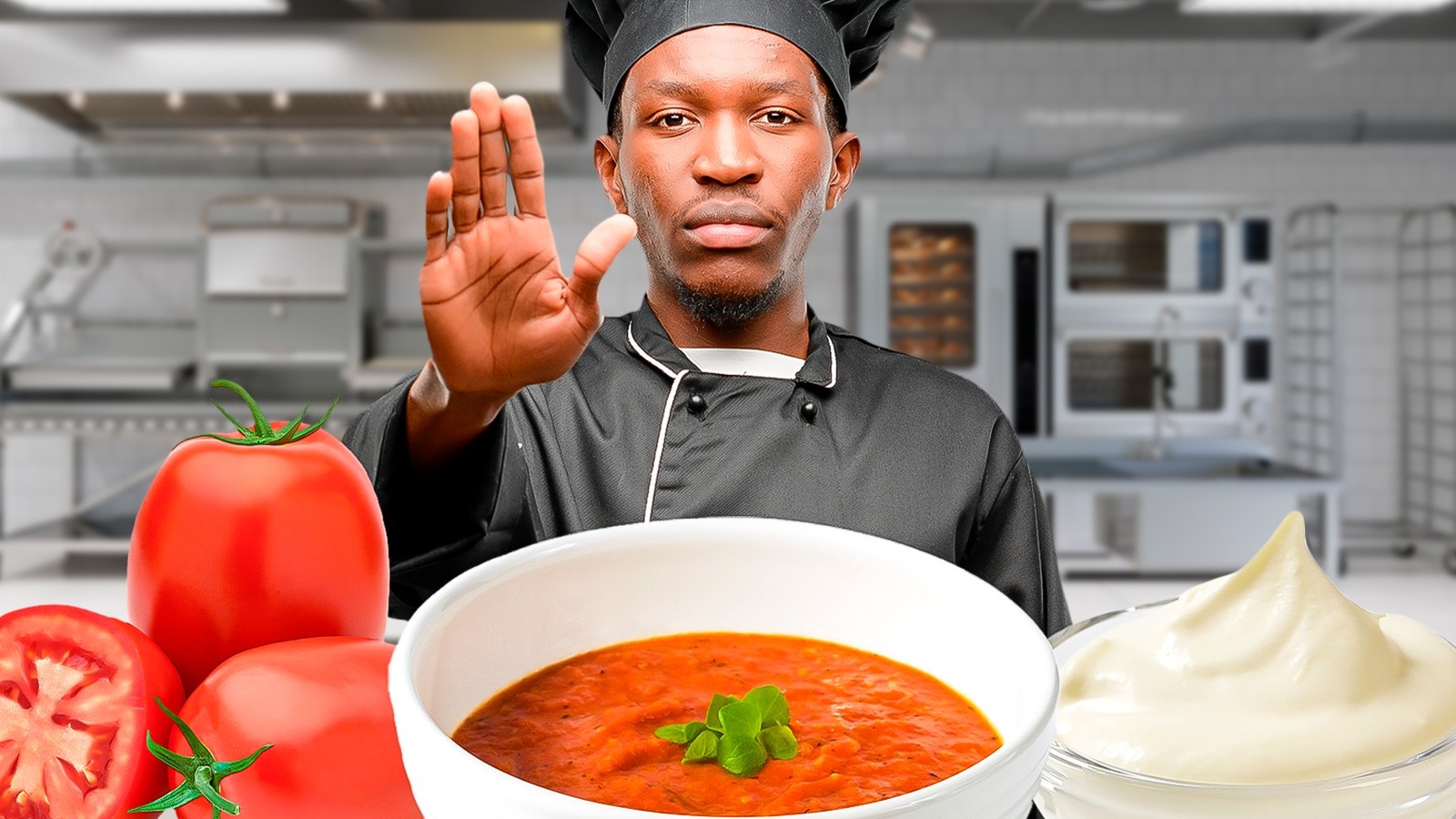
Tomatoes are a sour bunch. They might not taste it, but chemically speaking, they’re quite acidic, which causes certain reactions in the other ingredients you use with the fruit, not to mention the metal cookware you employ. In fact, the key thing to know about cooking tomatoes, whether it’s for soup, sauce, or any other reason, is that they should steer clear of reactive cookware and stick with the non-reactive kind.
If you’ve never heard of this distinction before, don’t worry, it’s quite simple. Reactive cookware, such as our beloved cast iron skillets, is free of enamel or other protective coatings, leading some of the metals contained within to leech into the food. Tomatoes, being especially acidic, tend to draw out those metals more than other types of ingredients. As such, it is recommended to cook tomatoes with non-reactive cookware, such as stainless steel pans. So when you roast those tomatoes in the oven before putting them in your soup, make sure you’re placing them on top of a non-reactive substance, or your food may end up tasting slightly metallic.
